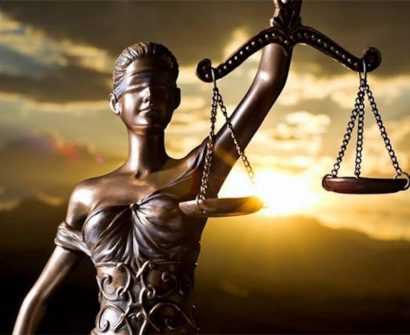
The phrase “hear the other side” (audi alteram partem) is one of the tenets of natural justice. This means that each party in a trial should have an equal opportunity to make their case. To fulfill the criteria of justice, one must grant everyone the opportunity to fairly state their case or the right to self-defense during a trial. Nobody ought to be punished without being afforded a fair opportunity to make their case. It can occasionally be difficult for someone to afford legal help owing to poverty. However, the necessity of a fair trial is violated if an individual is denied access to legal counsel or advice.
khatri vs state of bihar case Facts
- There have been reports that between 1979 and 1980, 33 pre-trial inmates in Bhagalpur, Bihar, had their eyes burned by police. It is regarded as one of the darkest periods in the history of independent India and was allegedly the worst instance of police torture.
- This case is also known as the bhagalpur blindings case. Judges from district and session courts only once a year visited the supposed Bhagalpur Jail to examine conditions; prisoners on trial were blinded by the police and brought before a judge who did not look into any injuries caused on the defendant, purposely or accidentally.
- Later, the blind inmates were brought to the Rajendra Prasad Eye Institute in New Delhi; but, because to their extreme visual impairment, neither surgery nor treatment could improve their eyesight.
- The Supreme Court received multiple briefs, so it decided to hear them all at once.
khatri vs state of bihar Issues
- Whether the filthy and overcrowded circumstances seen in Bihar’s lock-ups and jails violated the basic rights protected by article 21 of the constitution or not?
- Whether the State of Bihar has a duty to guarantee inmates humane conditions of confinement and provide amenities essential to their welfare or not?
- Whether the State had violated its constitutional obligations by failing to remedy the appalling circumstances in its lock-ups and jails or not?
Contentions by the Parties
Petitioner:
- The advocate for the blinded individuals expressed concern that the victims might not feel safe returning to Bhagalpur, particularly while the crimes of blinding were still being investigated.
- Additionally, it was argued that the State has to provide for some sort of housing for the blind victims in New Delhi.
- Another argument made by the petitioners was that the State should pay the blinded prisoners damages for Article 21’s violation of their fundamental rights.
- Additionally, it was claimed that because the police officers were State workers and violated the blinded prisoners’ rights under Article 21, the State was required to pay the blinded prisoners compensation. The police officers had left the prisoners visually impaired.
Respondent:
- The State’s advocate contended that since the inquiry was ongoing, it was still not shown that the blinding was caused by the police.
- Additionally, it was argued that the State should not be obligated to compensate victims even in cases when the police violated Article 21 of the Constitution and blinded the prisoners.
khatri vs state of bihar Judgment
- In khatri vs state of bihar, the Supreme Court ruled that the filthy and overcrowded circumstances in Bihar’s lock-ups and jails did, in fact, infringe inmates’ fundamental rights as guaranteed by article 21 of the constitution.
- In khatri vs state of bihar, the court emphasized that even for those who are in jail or detention, the right to life and personal liberty included the right to live with human dignity.
- It was noted that the appalling conditions in Bihar’s prisons, which included general neglect, inadequate food and medical facilities, overcrowding, and poor sanitation, amounted to a violation of inmates’ fundamental rights.
- The Court determined that regardless of whether a person is an undertrial or a convicted person, the State of Bihar was required by the Constitution to guarantee the humane treatment and well-being of anybody under its care.
- In order to improve the conditions in its jails and lock-ups, the State administration was ordered by the Court to act immediately and effectively. This included taking steps to address overcrowding, enhance sanitation facilities, provide enough food and medical treatment, and guarantee the safety and security of prisoners.
- In khatri vs state of bihar, the court also emphasized the necessity of regular inspections and monitoring systems to guarantee adherence to its orders and stop similar infractions from happening in the future.
As per the court’s ruling, this is a commendable decision in which the court has considered natural justice principles and rendered a ruling that empowers the underprivileged and neglected while also holding the guilty accountable. Justice P.N. Bhagwati, one of the most eminent jurists to have served in the Indian Supreme Court, wrote the decision. He was a pioneer of judicial activism.
For any latest news, legal topics, judiciary exams notifications, patterns, etc watch Jyoti Judiciary’s YouTube channel for legal videos for any updates at https://youtube.com/@jyotijudiciarycoaching4852?si=2cwubh9d2A9urwJf








